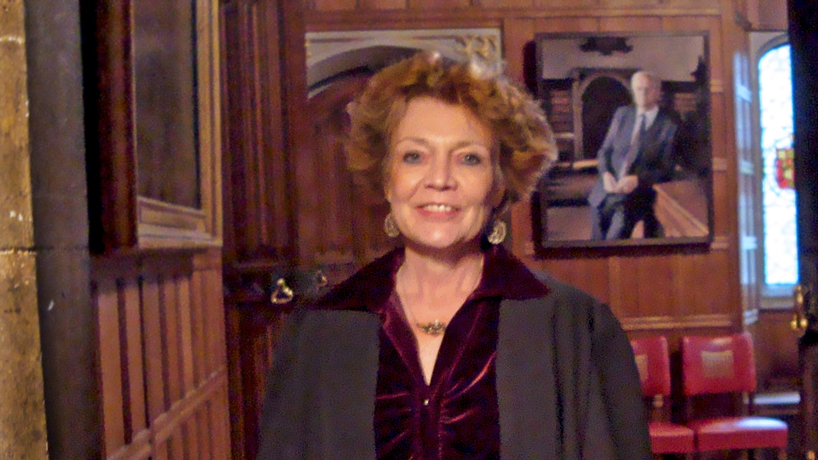
An internationally recognized expert on German politics, longtime Department of Political Science faculty member Joyce Mushaben is taking the lead on plans for an interdisciplinary certificate program in ethnicity, migration and human diversity.
Since joining the University of Missouri–St. Louis faculty in 1980, Joyce Mushaben has worn many hats and accomplished many things – teaching, publishing books and winning numerous awards, for starters. But this semester she’s taking on one more role – as UMSL’s first College Professor of Global Studies in Arts and Sciences.
In that capacity, she’ll operate across multiple disciplines and unite academic areas that are related in important ways but do not always connect with one another because they are separated into different departments.
Mushaben will lead the implementation of a certificate program in ethnicity, migration and human diversity, which will include course work in political science, sociology, social work, anthropology and a host of other academic areas.
“This interdisciplinary approach used to be the norm,” says Mushaben, who is an internationally recognized expert on German politics. “Then we entered this more quantitative phase when everyone started getting so specialized that it can be hard for people even in the same department to talk to each other. It’s true in all fields, not just political science.”
Mushaben says that her new position is, in part, a return to how universities once operated, and she intends to empower students to apply their own interdisciplinary approaches to their education.
“We think students will have a better chance at understanding the world if we give them a little bit of this and a little bit of that, then have them pull it all together,” she says.
The certificate program in ethnicity, migration and human diversity will be housed in the Department of Anthropology and Archaeology and will focus on human movement and its impact. The content of the program is especially timely, given the refugee crises in Europe and the debate about immigration in the U.S.
But the program is also timeless. As Mushaben is quick to point out, a student who wants to understand what is happening now needs to understand the proper historical context.
“Things don’t just occur out of nowhere, in a vacuum,” she says. “It’s easy to lose sight of that.”
The certificate program will also have a strong St. Louis connection, Mushaben adds, noting that a multicultural city like St. Louis is only possible because of immigration and other kinds of human movement. There are scores of different migrant groups with sizable communities in the region, and the certificate program is being designed to benefit anyone who interacts with the city’s public.
“Let’s say the police go to a Vietnamese household,” Mushaben says. “What do the officers do? They start talking to the 8-year-old, because it’s the 8-year-old who speaks English. They have just destroyed any possibility of making a real connection to that family because they’ve insulted the father as head of the family. This happens, but a program like this can help the officers deal with that situation with more sensitivity.”
In addition to police officers, Mushaben foresees the program being used to help social workers, medical professionals and anyone else who comes into contact with a broad spectrum of new or future Americans.
When Mushaben’s new position was announced last month, Ron Yasbin, dean of the College of Arts and Sciences, sent out a college-wide email of congratulations.
“In today’s world, Joyce’s interest and leadership in these areas make her a natural choice for the College Professorship,” he wrote.
Students and faculty interested in learning more about how they can contribute to the certificate program, and more about the ways in which migrants enrich the St. Louis community, are invited to attend a special launch event, “Innovation through Migration: The ‘Wealth of Nations’ in St. Louis,” on April 5. It will take place from 2 to 5 p.m. in the Social Sciences & Business Building (Room 335), with a reception to follow.















